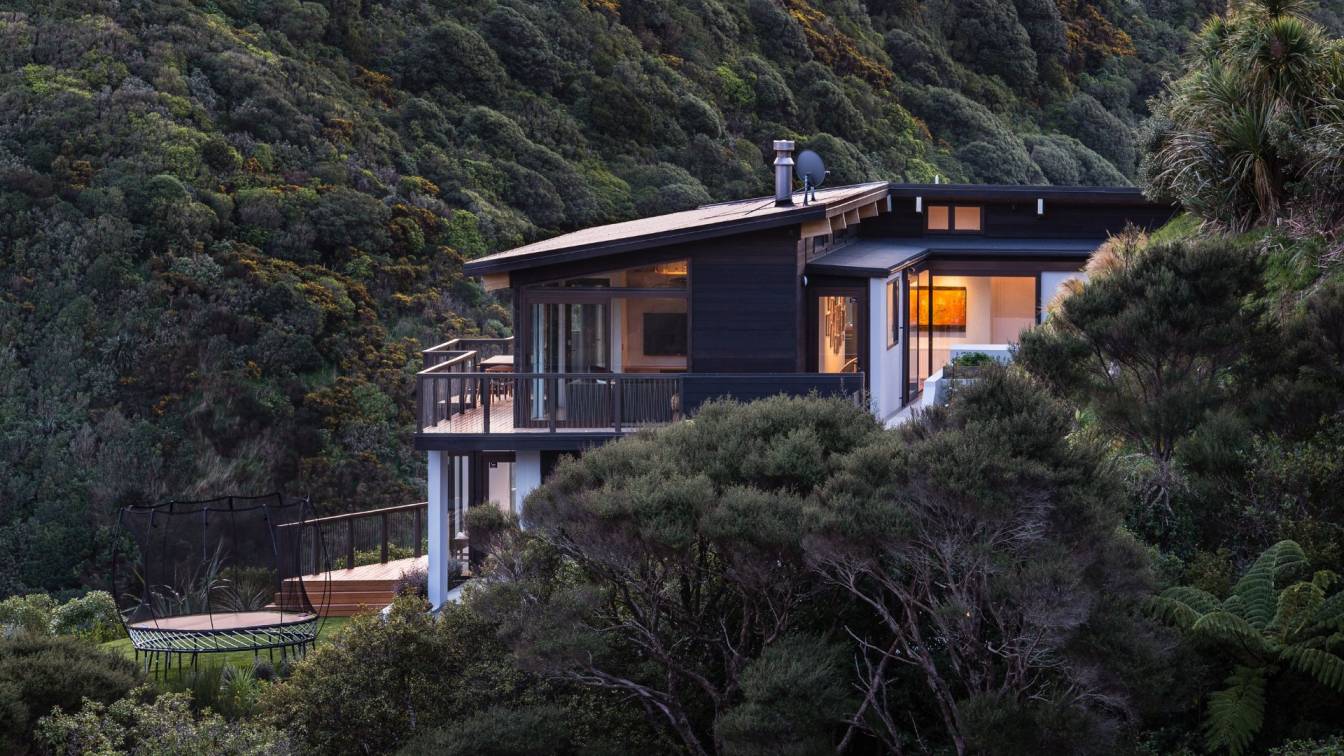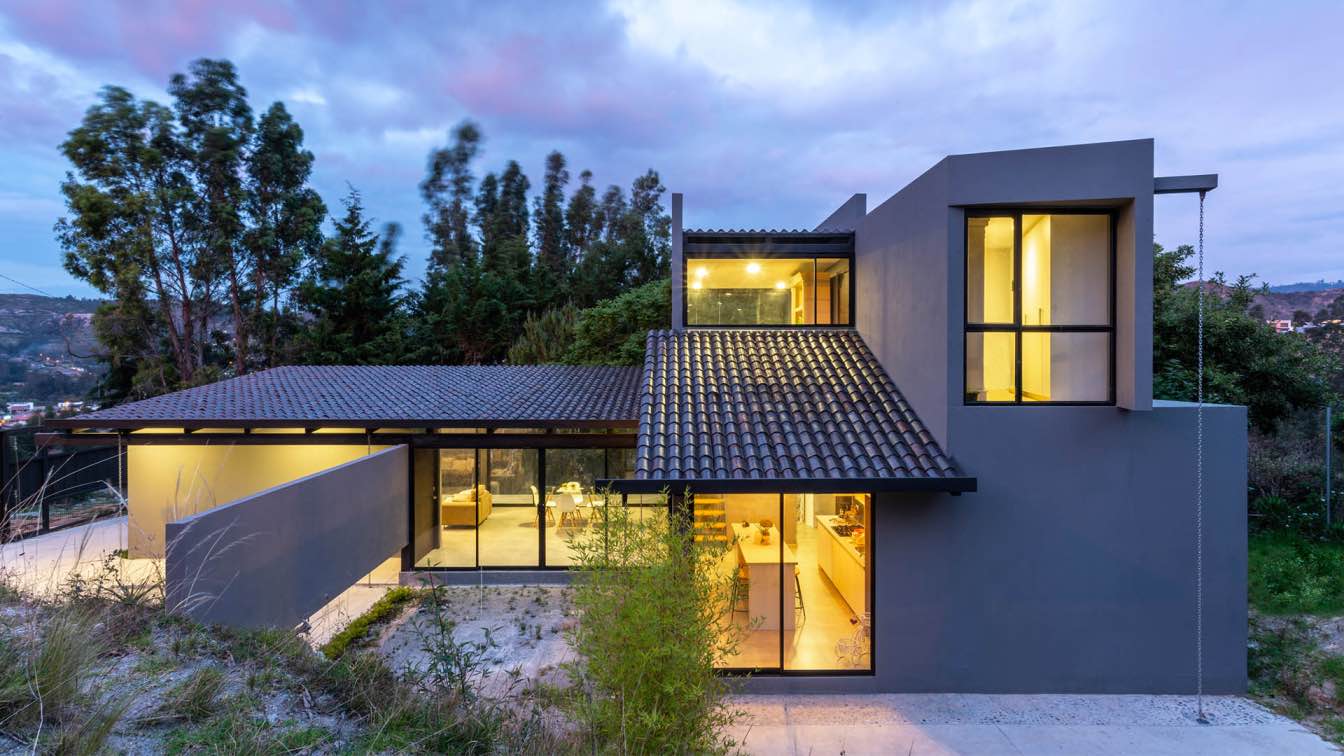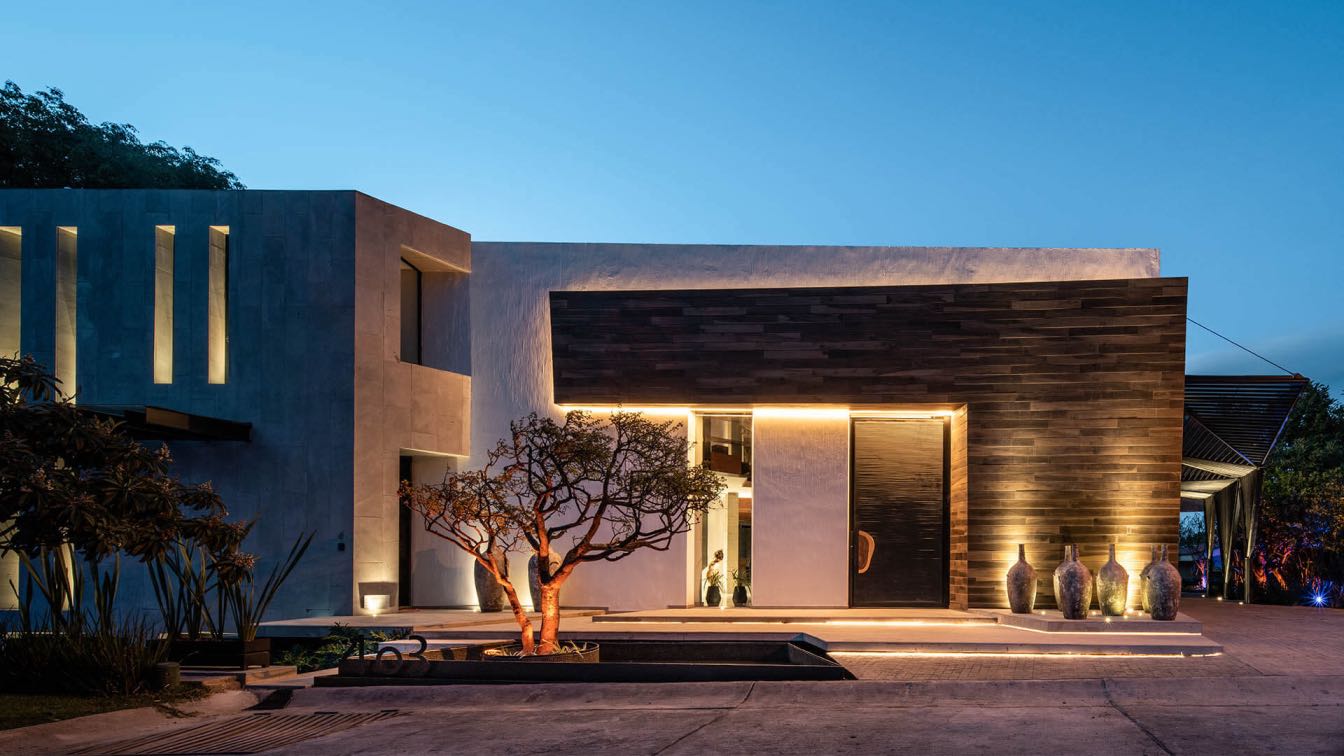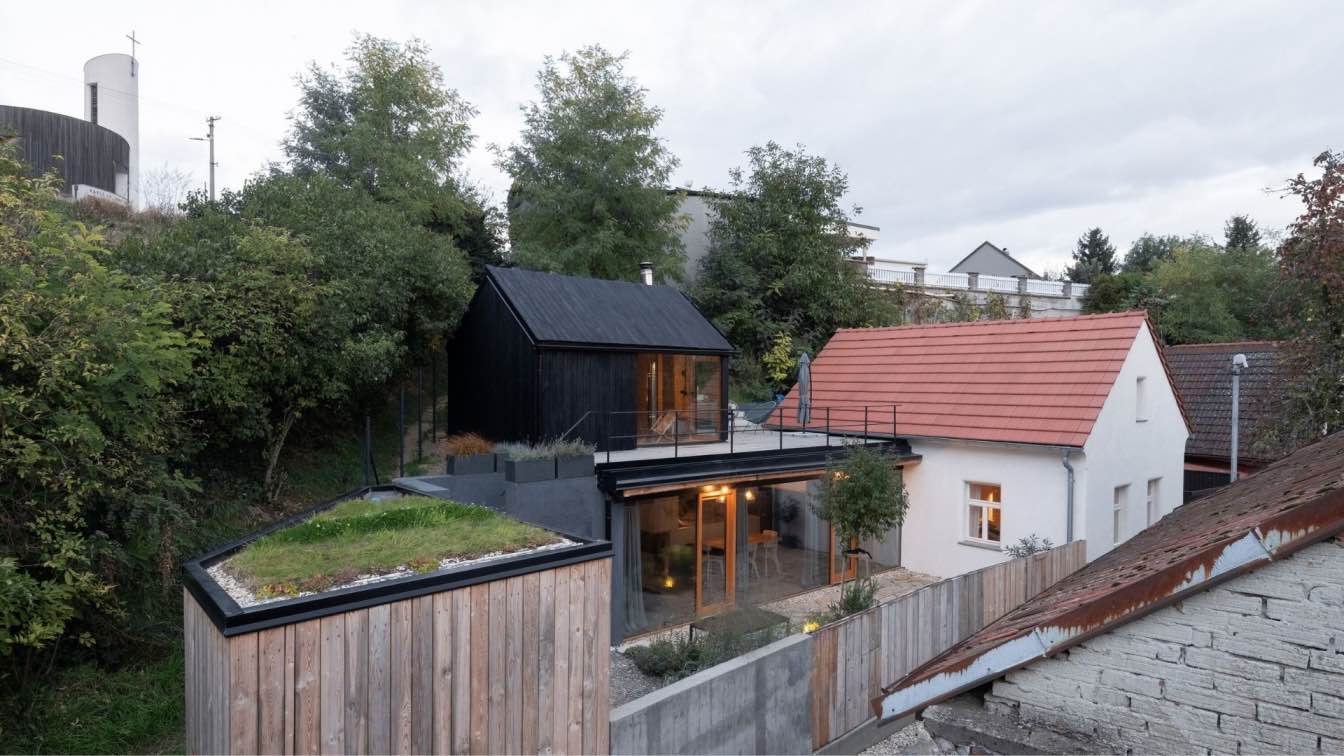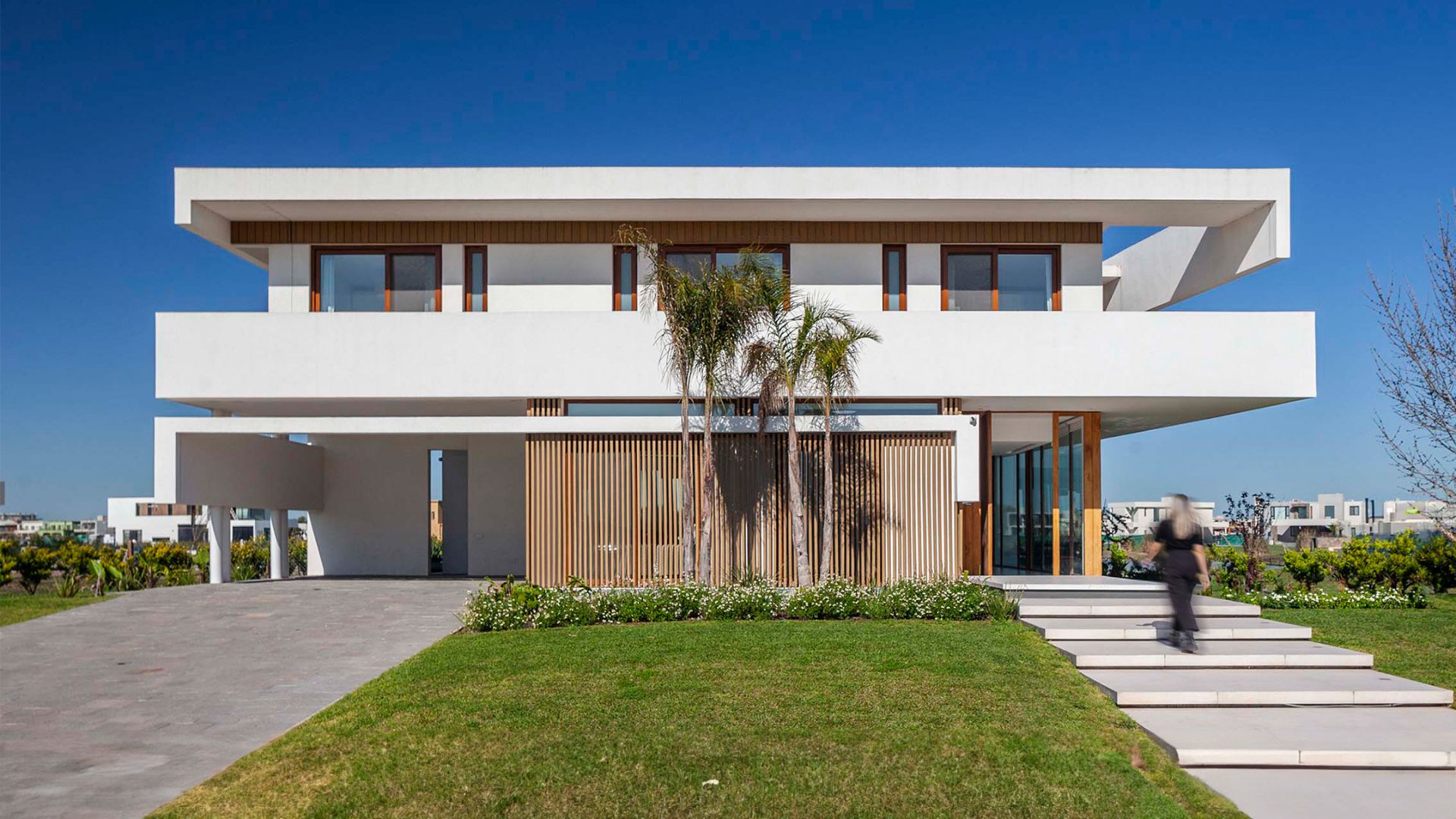Wallace Architects: This new house located adjacent to a conservation area of well established native bush, endeavours to make the most of its dramatic siting. It is organised around two central axis, one to the Korokoro Gorge and the other to the Cook Straits. The house forms an L-shape tucked around the corner of a steeply sloping section. This simple shape enabled two distinct areas, the private bedroom wing oriented to the Gorge and the more public living wing oriented to the spectacular views out to the Wellington harbour and Cook Straits. The owners Sri Lankan heritage added a layer of cultural richness and informed much of the material selection and organization of spaces.
Elements such as courtyards, exposed timber beams and bamboo are typical in Sri Lankan houses but were integrated into this house scheme in a contemporary way. The appeal of courtyard spaces also enabled Wallace Architects to provide several alternative outdoor spaces that would offer shelter in the varying dynamic wellington wind conditions.
Designed with environmentally sensitive materials including bamboo flooring and cabinetry throughout the interior, the exterior is clad with stained cedar weatherboards to compliment the bush setting. It is orientated to maximize solar gain and minimize heat loss through insulation and careful placement of doors and windows, making the house very comfortable, quiet with a sense of harmony with its surroundings.
This project has won the best of Houzz in the Design category in 2017, 2018, 2019, 2020 & 2021. It has also been Featured in Houzz and Home WorldDesign.
What was the brief?
The clients' brief for the design of their new family home emphasized simplicity and understated elegance, while prioritizing an open, airy feel with a strong connection to the outdoors. The home was to maximize natural light and warmth, and provide wall space for the clients' growing art collection. The clients specifically requested a departure from the trend of stark white interiors, with a focus on depth and texture in material selection that was contemporary without lacking personality. The home was to include 3 bedrooms and 3 bathrooms, along with generous utility and storage space. A 2-car garage and ample outdoor living space were also desired, including an outdoor fireplace, BBQ, and an area for preparing fresh fish. A small pool and vegetable garden were also to be incorporated into the design. The kitchen was to be centrally located and provide an open connection to the family and dining areas. A separate but connected space should be provided for the main living area and TV. Also a separate prayer and activity room that doubles as a guest room was included as part of their brief.

What were the key challenges?
The key design challenges included the unusual shape and steepness of the site. Also the primary views were south facing whilst maximizing the north sun was an important aspect of the brief. As well as providing outdoor spaces that are sheltered from Wellingtons notoriously strong wind conditions.
What were the solutions?
The solution was to organise the floor plan in an L-shape that followed the natural contours of the land, hence reducing the cut and impact on the landscape. This enables us to locate the more private areas of the house such as the bedrooms and terrace to the north overlooking the Korokoro Gorge. Public areas, such as the arrival and living areas, were situated along the south wing, offering stunning views of the harbour, with the kitchen located at the center or “hinge” of the house. We pitched the roof parallel to the slope of the hillside, this allowed for clerestory light to bring the north sun to the living (or south wing) of the house.
In terms of providing sheltered outdoor space, we designed four distinct outdoor spaces across both levels of the house which provided options depending on where the wind was coming from and what time of the day it was.
Key products used:
The house was designed with sustainable products where ever possible. Its is clad in stained cedar weatherboards to compliment its bush setting. Bamboo flooring is used throughout the upper floor and a combination of Hoop Pine and Bamboo is used for the cabinetry and shelving recesses. the sloped ceiling is lined with clear finished Hoop Pine.
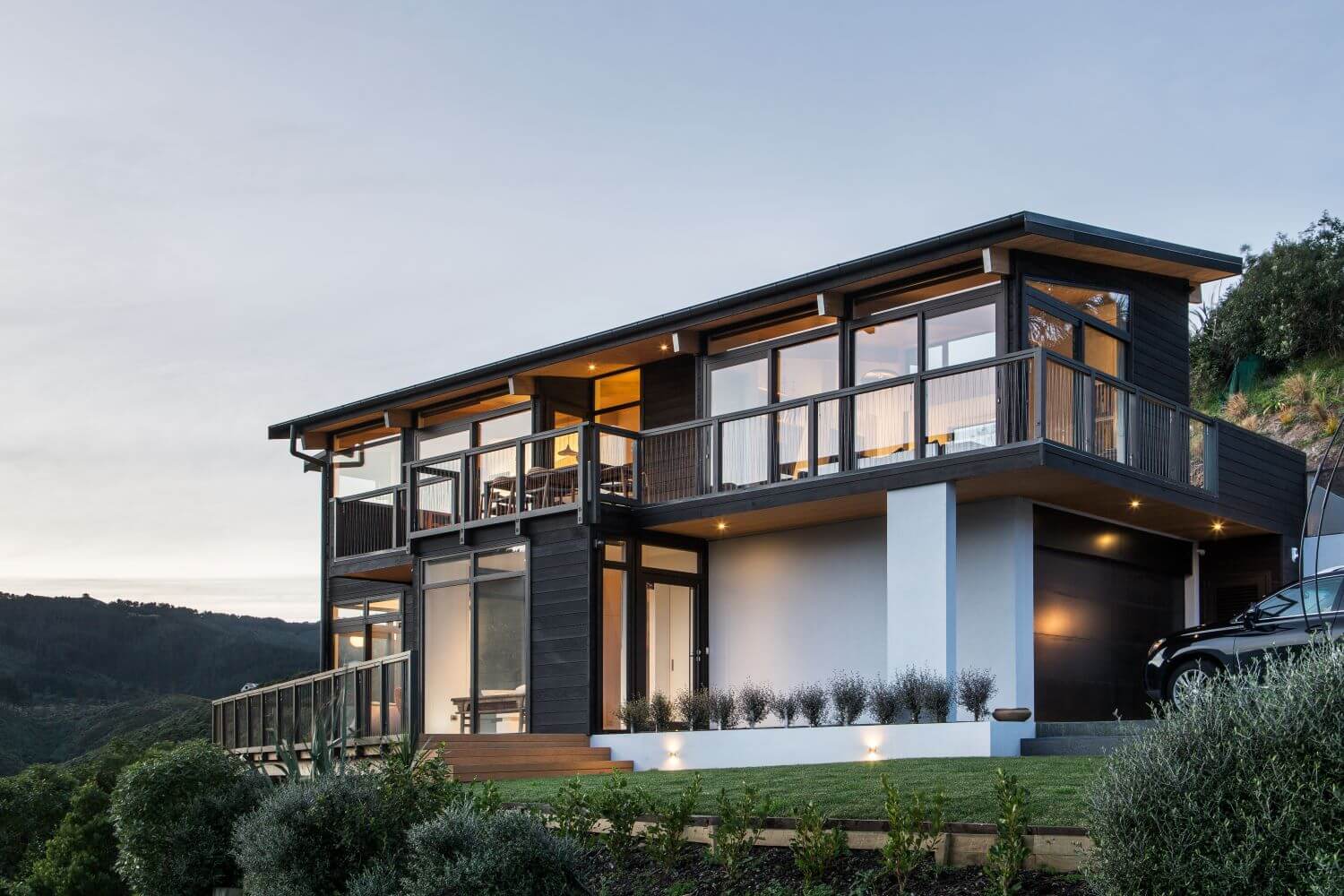
Who are the clients and what's interesting about them?
The clients are Asantha and Minon Wijeyeratne, and their two young children Chivan, and Avanka. Although having lived in NZ for a long time the couple was keen to honour their Sri Lankan heritage in the design and naturally bought a richness to their brief.
How is the project unique?
This project is unique due to its combination of factors. Firstly, its location in an area with significant natural indigenous vegetation, coupled with its dramatic contours and stunning views, contribute to its distinctive character. In addition, the project reflects the multi-cultural influences of its owners, which adds to its uniqueness.
What building methods were used?
Standard building methods were used including a lightly polished concrete slab on grade for the lower level with plastered concrete block retaining walls. Timber framed walls with a rigid air barrier and cedar cladding over a cavity. Exposed Glulam beams support the sloping roof. The gallery/ hall that runs along the full length of the upper floor to the hillside of the house has a flat roof with a lower plasterboard ceiling providing a circulation space and a more intimate space for viewing artwork and family photos.














